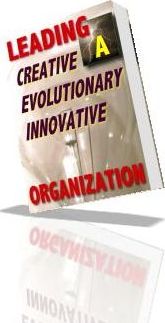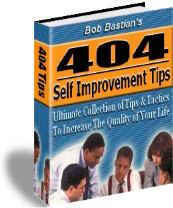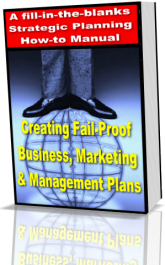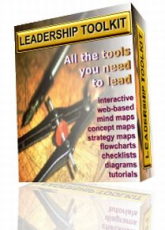Paragons of Knowledge Metazine!
Generating Massive Power
Through
Enlightened Uses of Your Leadership,
Entrepreneurship and
Professionalism!
Syntopic
Intelligence
Knowledge-Work-Skills
The Leadership-Toolkit
Collection
|
7 Essential Elements of Leading Change
By: Mike Beitler In my practice as an organizational effectiveness consultant, the most frequent phone call I receive involves clients and prospective clients asking how to overcome resistance to change in their More FREE Leadership Articles! In my practice as an organizational effectiveness consultant, the most frequent phone call I receive involves clients and prospective clients asking how to overcome resistance to change in their organizations.
Throughout my book, Strategic Organizational Change, I recommend a strategy-driven approach to planning and implementing change. Unfortunately, many organizations do not follow a systematic approach (my approach or anybody else's) for planning and implementing change.
An Unworkable "Plan"
Most organizations still attempt the following "plan" for organizational change:
1. senior management determines that a change is needed
2. the CEO announces the change to "the troops"
Needless to say, this "plan" is inviting resistance.
Seven Essential Change Elements
In the unworkable plan above, senior management has failed to consider the following seven essential elements for successful organizational change:
1. Involve the people who will be affecting (and affected by) the change. Get their input. Workers are a valuable source of information for management decision making. Today's workers want to be part of what's happening. (No buy-in from these folks guarantees resistance.)
2. Communicate a good reason for the change. Human beings can change quickly when they see a way to maximize benefits and/or minimize threats. Make sure the change is seen as relevant and strategy-driven. (Busy people will resist changes that they see as irrelevant.)
3. Designate a champion for the change. A senior executive does not have to take the champion role. In fact, it might be better to find someone the workers can relate to. (Natural leaders, many times in unofficial roles, exist throughout every organization. Take advantage of their leadership ability.)
4. Create a transition management team. This cross-functional team can provide emotional support as well as practical ideas for change leaders. (Remember, no one individual is charismatic or talented enough to effectively implement an organizational change single-handedly.)
5. Provide training in new skills, behaviors, and values. If workers fear a loss of competency, they will resist change. They will revert back to the old skills, behaviors, and values when they feel threatened. (Change invariably involves a threat to one's current sense of competency.)
6. Bring in outside help. This sounds like a self-serving comment since I am an independent consultant, but the external consultant can play a critical role. An outsider brings a fresh perspective. An outside
consultant doesn't have an "axe to grind." (And realistically, most senior managers are not trained in
leading or facilitating organizational change.)
7. Reward people. Remember, whatever behaviors you reward, you get more of. Rewards do not have to be in the form of cash. Acknowledgement, praise, new job assignments, or additional decision-making authority can be more powerful motivators than cash. (In every successful organizational change, people are the essential factor.)
Dr. Mike Beitler is the author of "Strategic Organizational Change" and "Strategic Organizational Learning". His books are used at General Motors, Coca-Cola, IBM, Wachovia, BASF, Glaxo Smith Kline, Daimler-Chrysler, and many more great companies. His work is written for practitioners who need real-world tools and strategies to be truly effective in their organizations. Find more info on Mike and his work at http://www.mikebeitler.com/ |
Article_Home Personal Leadership About Us Paragons of Knowledge! |
"Knowledge is power. It takes a long time to harness enough power to even talk about it." - Don Juan, speaking in "Journey to Ixtlan: The Lessons of Don Juan", by Carlos Castaneda, 1972
Empower Your Meetings With Productive
Results!
Lead Better Meetings!
Boost Creativity, Innovate and Energize Your Growth!
Discover 404-Ways To Save Money, Make Friends, Get Healthy & Create
Success!
Get
Started Today!
Create Fail-Proof Plans & Achieve Strategic
Alignment!
Develop Breakthrough Plans!
All-the-Tools-You-Need-to-Lead & Succeed!
Equip Your
Leadership Today!
Mustard Seed Investments,
Inc.
140 West 29th Street, STE-161
Pueblo, Colorado 81008
USA
+1-719-544-9949
All text, content and images are
protected by:
Copyright © 2005, Mustard Seed Investments,
Incorporated,
All rights reserved

